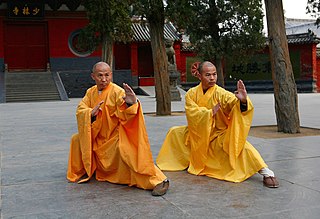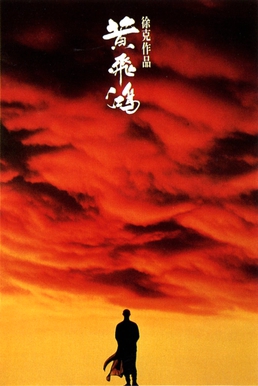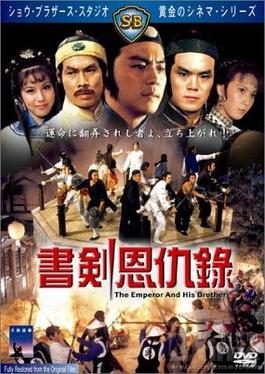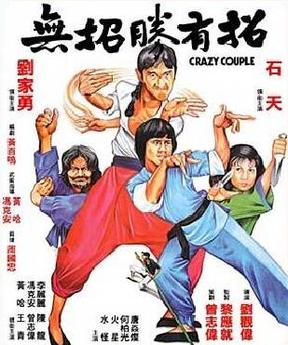Related Research Articles

Taoism or Daoism is a diverse philosophical and religious tradition indigenous to China, emphasizing harmony with the Tao 道. With a range of meaning in Chinese philosophy, translations of Tao include 'way', 'road', 'path', or 'technique', generally understood in the Taoist sense as an enigmatic process of transformation ultimately underlying reality. Taoist thought has informed the development of various practices within the Taoist tradition and beyond, including forms of meditation, astrology, qigong, feng shui, and internal alchemy. A common goal of Taoist practice is self-cultivation, a deeper appreciation of the Tao, and more harmonious existence. Taoist ethics vary, but generally emphasize such virtues as effortless action, naturalness, simplicity, and the three treasures of compassion, frugality, and humility.

Wong Fei-hung was a Chinese martial artist, physician, and folk hero. His recent fame was due to becoming the protagonist of numerous martial arts films and television series. The role of Wong Fei-hung has been played by numerous well-known stars of Hong Kong and Chinese cinema, including Gordon Liu, Jackie Chan, Kwan Tak-hing, Jet Li, Vincent Zhao, and Sammo Hung. Even though he was considered an expert in the Hung Ga style of Chinese martial arts, his real public fame was as a physician who practiced and taught acupuncture, Dit Da and other forms of traditional Chinese medicine in the now famous Po Chi Lam, a medical clinic in Canton (Guangzhou), Guangdong Province. A museum dedicated to him was built in his birthplace in Foshan, Guangdong.

Zhang Sanfeng refers to a legendary Chinese Taoist who many believe invented the Chinese martial art tai chi. However, other sources point to earlier versions of tai chi predating Sanfeng. He was purported to have achieved immortality.

Hung Ga (洪家), Hung Kuen (洪拳), or Hung Ga Kuen (洪家拳) is an ancient southern Chinese martial art, which roots lie in the Northern Shaolin kung fu. It is one of the most widely practiced styles of wushu from southern China in the world.
Kwan Tak-hing was a Hong Kong martial artist and actor best known for his portrayal of martial artist folk hero Wong Fei-hung in at least 77 films, between the 1940s and the 1980s. No one else in cinema history has portrayed the same person as many times. In total he made over 130 films. He was elected in 1955 as the chairman of the Chinese Artist Association of Hong Kong. He was awarded the MBE in 1982.

Lam Sai-wing was a Hung Gar martial artist. He was a student of the Chinese martial artist, acupuncturer and folk hero of Cantonese ethnicity, Wong Fei-hung.

Dreadnaught is a 1981 Hong Kong martial arts comedy horror film directed by Yuen Woo-ping, and produced by Raymond Chow. The film stars Yuen Biao, Bryan Leung, and Kwan Tak-hing. The film was released theatrically in Hong Kong on 5 March 1981.

The Magnificent Butcher is a 1979 Hong Kong martial arts comedy film directed by Yuen Woo-ping, and starring Sammo Hung, Kwan Tak-hing, Yuen Biao, and Wei Pai.

Once Upon a Time in China V is a 1994 Hong Kong–Chinese martial arts action film written and directed by Tsui Hark. The film is the fifth installment in the Once Upon a Time in China film series, with Vincent Zhao reprising his role as Chinese martial arts master and folk hero of Cantonese ethnicity Wong Fei-hung after taking over the character from Jet Li in Once Upon a Time in China IV. The film also saw the return of Hark as director and of Rosamund Kwan as "13th Aunt", who was absent in the fourth film.

Once Upon a Time in China is a 1991 Hong Kong biographical martial arts film directed and produced by Tsui Hark, who also wrote with Yuen Kai-chi, Leung Yiu-ming, and Elsa Tang. Jet Li stars as Chinese martial arts master and folk hero of Cantonese ethnicity, Wong Fei-hung. The film co-stars Yuen Biao, Jacky Cheung, Rosamund Kwan, and Kent Cheng. It is the first installment in the Once Upon a Time in China film series. It is a staple in the Wuxia genre. It is regarded as one of the most influential martial arts movies of all time.

The Emperor and His Brother is a 1981 Hong Kong wuxia film based on Louis Cha's novel The Book and the Sword. Produced by the Shaw Brothers Studio, the film was directed by Chor Yuen and starred Ti Lung, Jason Pai and Lo Lieh in the leading roles.
Deng Ming-Dao is a Chinese American author, artist, philosopher, teacher and martial artist. Deng is his family name; Ming-Dao is his given name. From a young age, he studied Taoist internal arts such as Qigong and Kung-Fu.

Bruce Kumar Frantzis is a Taoist educator who studied Taoism in China.

The Legend of the Book and Sword is a Hong Kong television series adapted from Louis Cha's novel The Book and the Sword. The series was first aired on TVB in Hong Kong in 1987.
Dang Fong 鄧芳 was a disciple of the Chinese Kung Fu folk hero Wong Fei Hung. It is said that his rigid ways prompted him to follow and document the Hung Ga Kuen teachings of Wong Fei Hung to the letter, thus he was referred to as Old Square Mind for his stubbornness to tradition. This statement cannot be confirmed, but it can be confirmed that he was known as the Tiger of Sai Gwan.

Wudangquan is a class of Chinese martial arts. In contemporary China, Chinese martial arts styles are generally classified into two major groups: Wudang (Wutang), named after the Wudang Mountains; and Shaolin, named after the Shaolin Monastery. Whereas Shaolin includes many martial art styles, Wudangquan includes only a few arts that use the focused mind to control the body. This typically encompasses tai chi, xingyiquan and baguazhang, but must also include bajiquan and Wudang Sword. Although the name Wudang simply distinguishes the skills, theories and applications of the internal arts from those of the Shaolin styles, it misleadingly suggests these arts originated at the Wudang Mountains. The name Wudang comes from a popular Chinese legend that incorrectly purports the genesis of tai chi and Wudang Sword by an immortal, Taoist hermit named Zhang Sanfeng who lived in the monasteries of Wudang Mountain. Wudangquan is often used synonymously with Neijia, but Neijia is a broader term that also encompasses Qigong, which is not Wudangquan.
Die da or dit da is a traditional Chinese method of bone-setting used to treat trauma and injuries such as bone fractures, sprains, and bruises.

Crazy Couple is a 1979 Hong Kong martial arts comedy film directed by Ricky Lau and starring Dean Shek and Lau Ka-yung.

The Return of Wong Fei Hung is a 1984 Hong Kong martial arts television series produced by TVB and starring Andy Lau. Despite Wong Fei-hung being part of the English title, Wong is only a supporting character in the series while the protagonist is his famed disciple Lam Sai-wing, portrayed by Lau. The Cantonese title is "Po Chi Lam", the name of Wong's famed medicine clinic.

The Magnificent Kick is a 1980 Hong Kong martial arts biography film. The film is a flashback story of the life of Wong Fei Hung, the Chinese martial arts master and folk hero of Cantonese ethnicity, and is named after his trademark move- a kick too fast to be countered, known as 'the shadowless kick'. The director is Daniel Lau Tan Ching, and the producer is Ng Why. The film stars Kwan Tak-hing, Jason Pai Piao, Cecilla Wong and Han Ying-chieh. The production company is Friendship Films (H.K.) Co, Hsu Tang is the production manager, the screenplay is by Sze-To On, and the script supervisor is Wong Mei Ling. The martial art used in the film by Kwan Tak-hing is Hung Ga / Hung Gar.
References
- ↑ Deng Ming-Dao: Chronicles of Tao: The Secret Life of a Taoist Master. ISBN 0-06-250219-0
- ↑ "Kwan Sai-Hung Profile from the Omega Institute" . Retrieved 2007-08-08.